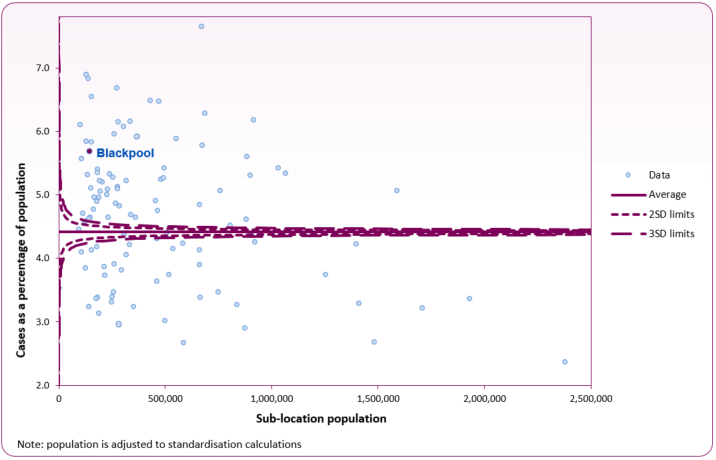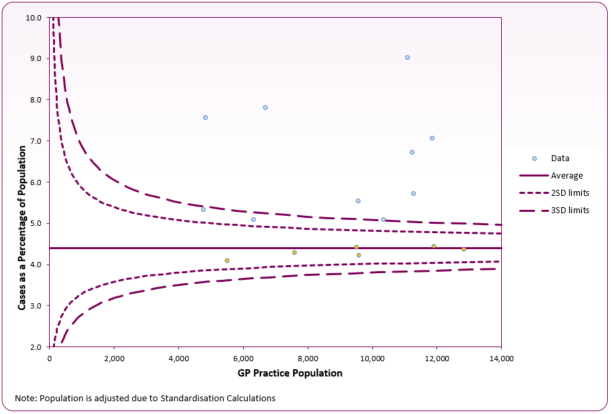Chronic Kidney Disease
Last Modified 03/12/2025 13:30:55
Share this page
Introduction
Chronic kidney disease occurs when a person suffers from gradual and usually permanent loss of kidney function over time. This happens slowly, usually months to years. With loss of kidney function, there is an accumulation of water, waste, and toxic substances in the body, which are normally excreted by the kidney. Loss of kidney function also causes other problems such as anaemia, high blood pressure, acidosis (excessive acidity of body fluids), disorders of cholesterol and fatty acids, and bone disease.
Facts and figures
Prevalence of chronic kidney disease
For further information regarding the source of the Quality and Outcomes Framework (QOF) prevalence data and its limitations please see the note on QOF Data.
In 2023/24, 8,224 people (aged 18 and over) in the Blackpool ICB sub-location (formerly NHS Blackpool CCG) were identified as living with chronic kidney disease (CKD).1 This equates to 5.7%, which is significantly higher than England's average (4.4%), although the trend is decreasing overall.
Blackpool's sub-location is shown as a purple marker in figure 1, with all other sub-locations across England shown in blue. Blackpool's CKD prevalence was among the top 20 of highest rates in England, an improvement from 2021/22 where the authority was in the top 10.
Figure 1 - Chronic kidney disease prevalence (18+) funnel plot analysis at sub-location level (2023/24 QOF)
 Source: OHID - National General Practice Profiles
Source: OHID - National General Practice Profiles
Figure 2 shows all the GP practices that make up Blackpool's sub-location (formerly NHS Blackpool CCG). There is a considerable range in recorded prevalence of chronic kidney disease at GP practices from 4.1% to 9.0%.
Figure 2 - chronic kidney disease prevalence (18+) funnel plot analysis at GP level (2023/24 QOF)
 Source: OHID - National General Practice Profiles
Source: OHID - National General Practice Profiles
The light blue practices in the funnel plot above have a significantly higher prevalence of CKD, compared to England. The six practices with similar prevalence of CKD (in yellow) are Adelaide Street Surgery, South King Street Medical Centre, Waterloo Medical Centre, Marton Medical Practice, Bloomfield Medical Centre, and Newton Drive Health Centre.
National and local strategies (current best practices)
Risk factors
Kidney disease is most often caused by other conditions that put a strain on the kidneys.
High blood pressure (hypertension) and diabetes are the most common causes of kidney disease. The evidence indicates that high blood pressure causes just over a quarter of all cases of kidney failure. Diabetes has been established as the cause of around a quarter of all cases.
[1] Office for Health Improvement and Disparities, National General Practice Profiles